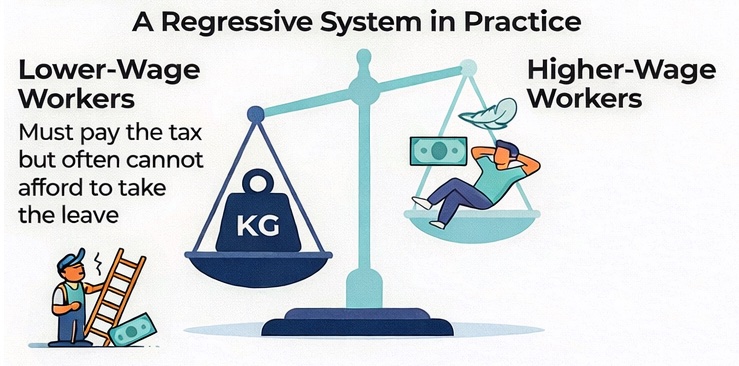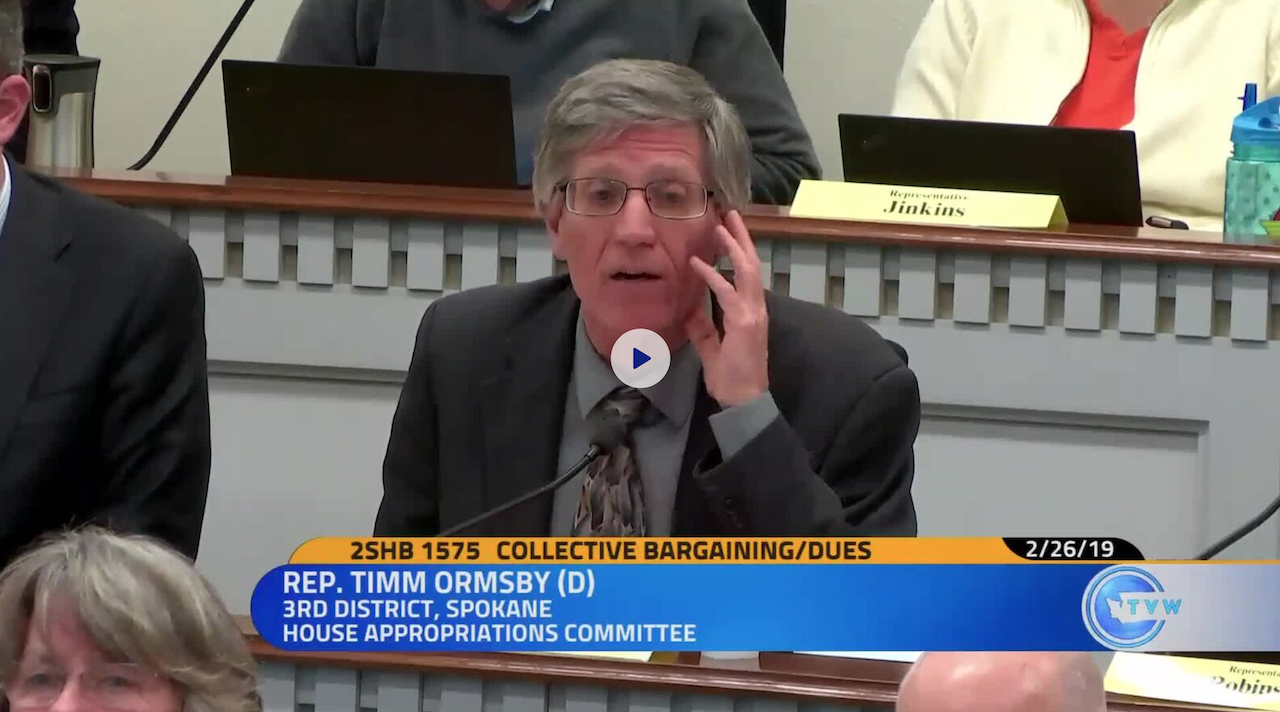The Washington state House of Representatives and Senate have approved HB 1575, legislation that includes a laundry list of union giveaways designed to provide an unconstitutional leg up in the post-Janus world. The bill passed along party lines in both chambers as Democrats demonstrated their fealty to the government unions that helped elect them, at the expense of the citizens they are supposed to represent.
All that remains is for the governor to sign the bill into law, which he will undoubtedly do posthaste.
The goal of HB 1575 is to help government unions by making it more difficult for public employees to exercise their new First Amendment “Janus” right to stop paying a government union for representation they do not agree with or want. And conversely, to make it easier for government unions to continue collecting payments, even if the worker objects and seeks to exercise his or her new Janus rights.
The bill:
- Scraps the current requirement that a worker must agree to the deduction of union dues in writing and instead allows such authorization to be in the form of electronic or “recorded voice” authorization.
- Requires any request to revoke the authorization for union dues deduction be submitted to the union by the worker in writing.
- Gives unions the sole power to decide whether union dues are deducted from a worker’s paycheck by requiring that public employers “rely on information provided by the exclusive bargaining representative regarding the authorization and revocation of [union] deductions.” This means government employers will not be allowed to respond to an employee’s request to exercise their Janus rights and quit paying their union. Such directives can only come from the union. If the union says the deductions have not been properly revoked, the employer must continue collecting the dues and it’s up to the worker to figure out how to take on the union so they can keep their own money.
- Removes privacy protections that allow public workers to vote on union representation via secret ballot; workers will instead be asked to sign “showing of interest” cards in person by union organizers, exposing them to pressure, intimidation, and coercion.
- Makes it easier for government unions to grow their membership by lowering the threshold to be certified as the exclusive representative of a bargaining unit. Currently unions must provide “showing of interest” cards from 70% of the workers in a bargaining unit to become certified as the exclusive bargaining representative; under this bill that threshold is reduced to just 50%.
More than a dozen amendments seeking to improve the bill in the House and Senate failed along party line votes. Those failed amendments included: removing the provision allowing unions to use “recorded voice authorization” as an approved method to commence the collection of union dues; adding a provision allowing workers to revoke dues deductions via the same method deductions are authorized (such as via “recorded voice authorization”); requiring government employers to stop the deduction of union dues upon the request of a worker, specifying that union certifications be done through secret ballot elections, and more.
The amendments failed along party line votes.
The restrictions on when and how a worker can exercise their Janus rights is as much a violation of their constitutional rights as requiring them to pay the union. In both cases, workers are forced to subsidize speech with which they fundamentally disagree, either directly or through rules deliberately constructed to make it difficult to stop payments.
Whether the provisions of HB 1575 violate the spirit, if not the letter, of the U.S. Supreme Court’s Janus ruling, and violate the constitutional rights of public workers, will likely be decided in court.
During debate in the House on HB 1575, Representative (and attorney) Drew Stokesbary (R-Auburn) warned HB 1575 is likely unconstitutional. Rep. Stokesbary expressed his legal opinion that by making it “incredibly more difficult to opt out than it is to opt in,” the bill violates workers’ constitutional rights and exposes the state to liability for wrongful withholding of employees wages.
In a startling response, Representative Timm Ormsby (D-Spokane) dismissed the “constitutional challenges” asserted by Rep. Stokesbary, declaring such issues are simply not the concern of the legislature: “It is not in our purview to make those decisions.” Rep. Ormsby explained the legislature “is not the venue where we determine constitutionality, it happens across the parking lot [in the Washington state Supreme Court]…”
Rep. Stokesbary quickly shot back that “it is incumbent upon lawmakers to refrain from doing what may be unconstitutional.”
Clearly lawmakers were not moved by Rep. Stokesbary’s concerns; the House passed HB 1575 on March 11, and the Senate followed on April 12, with the House putting the final stamp of approval on the bill on April 18.
The Freedom Foundation has made it clear it agrees with Rep. Stokesbary and will vigorously defend workers’ constitutional rights:
“We won’t stand by and allow the unions and the legislature to run roughshod over the constitution. We look forward to challenging this power grab in court at the first possible opportunity.”
Get ready for Janus 2.0.







